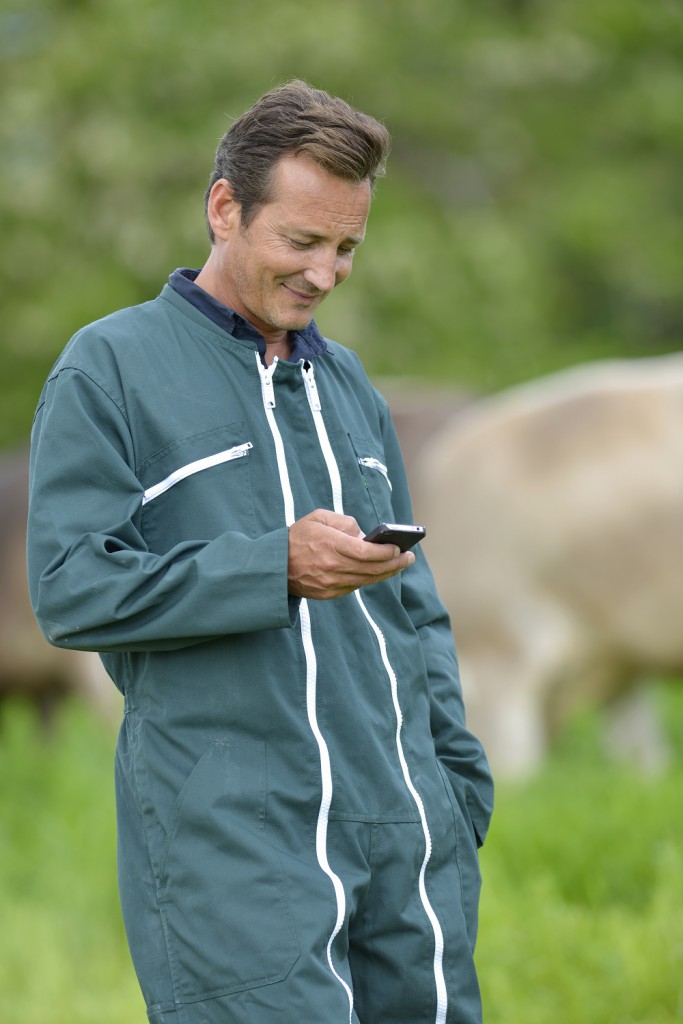By Tom Baumann

I am sitting at a work station on a BC Ferry to Vancouver Island. The reason for the trip this time is cranberries. I have four members of my team along (Zach Fleming, Joey Levitsky, Kurt Balogh and Loren Muth) to do an in-depth field session on the crop. While they roam the ferry in search of food and drink with smart phones in hand, I ponder what their future holds…
Agriculture is in transition for this new generation of farmers—those who are permanently attached to their electronic devices. Their abilities, combined with the world’s knowledge at their fingertips, will allow them to conduct agriculture in a totally different way. If they need some spare part for a repair over winter, they will Google it and compare prices globally. Or they look up who has the best price and the quickest supply for inputs in form of fertiliser and irrigation materials. They can access bank loans via the internet and make deposits with their cell phones when they pick up a cheque at the mailbox—if that is even a thing anymore as direct deposits are replacing hard copy cheques.
When modern farmers talk about updating themselves, it is by hopping on a plane to Europe to learn about the latest improvements in the greenhouse industry, or to China to attend a conference on berry genetics. My own crew has been to Chile, China, many states in the US, Australia, Holland, and the Caribbean—for conferences, field tours and seminars. They meet like-minded folks such as distributors, fellow farmers and research scientists.
Further on the education side, most young farmers have at least a diploma, usually with a degree in business of agriculture, plant science, or animal science, and many variations thereof. Flexibility in education delivery is important and classes can be attended in person or asynchronously through distance delivery. Many students are being educated for jobs in fields that do not even really exist yet.
This next generation has to be very knowledgeable as misinformation on the Internet can be rampant. Web pages may contain either nonsense or the wrong information is published. It’s tough to distinguish the good from the bad and the ugly… Also, after wading through a tremendous amount of information—and misinformation—how does one find a reliable trading partner for either purchases or sales? It is extremely time consuming to sort through information that is both useful and useless.
The speed and number of online transactions and social interactions can create both opportunities and pitfalls, which can make working hours seem even longer. We have all experienced the incessant beeps of the cell phone when someone expects an immediate answer. This is now the norm, not the exception anymore.
There have been many occasions when someone sent me an email, then two minutes later asked by text whether I received the email, and again two minutes later checked via phone to see if the message arrived since I had not responded yet. That is not only needy but also stressful for both parties. These distractions, constant as they are, can cause us to drive erratically and walk into walls trying to keep up with the texts, tweets and emails. And then there are those comical scenes in restaurants where a party of four are busy updating their Facebook status, but not personally interacting with the people directly in front of them. The devices and apps that were meant to enrich lives almost seem to remove people from reality, from life going on in front of them. But this is the world we now live in…Welcome to the matrix.

The constant connection to the web brings about a new standard where we are all expected to react faster. A report needs to be done in an hour or a picture taken right now; an answer to a meeting request should have been answered yesterday. Human beings can only process so fast, and demands on us are getting higher and so are our anxiety levels; the need to unplug keeps rising.
The technology in modern agriculture is growing and getting more complex, from cell phones to robots, which save us from backbreaking and repetitive work, but there are concerns that come with the convenience.
With global competition, we need to be far more technology savvy in agriculture to retain our edge as the next generation crops up into management positions. We are past consulting books in the library for things that need fixing now.
For those apps that are specific to agriculture, there are plenty. Examples are:
- FarmingWithApps.com;
- weather services by Environment Canada or by AccuWeather;
- CropLife.com has a plethora of apps listed and described;
- many universities list apps as resources.
My young apprentices wonder how the older generation ever got along without being connected to electronics. Imagine having to wait for answers sent by mail! Imagine having to walk to a rotary dial phone when you needed to speak to someone! How boring life must have been when one couldn’t instantly book something or purchase an item on the other side of the globe. What did one do before accurate five-day weather forecasts? One can even host a barn-raising by smartphone and tablet. You can check on how the Canucks are playing even if you are seeding, fertilising or spraying. You can stay connected with your agricultural peers while you encounter problems. Need to change a gear? There’s a video online. Want to run a tractor accurately with precision farming? Use a built in GPS program and the tractor even turns around and remembers what was seeded and what was not.
We can rely on drones to check our crops or even tell us there is an aphid infestation so the area can be treated promptly—and it can be controlled by a smart phone. And there are national data bases on pesticide labels that can be accessed any time—even in the pesticide shed.
Modern technology is here to stay in agriculture. Some say this will lead to the decline of employment in the field; however, someone needs to program, install and fix the new machinery and electronics. There is just a shift in tasks: less onerous, repetitive work and more high-tech jobs—sexier than pushing a broom!
…Now we are arriving at the Schwartz Bay terminal and I need to meet my crew at the truck; come to think of it, I’d better text them to let them know to meet at the truck . . . perhaps I’ll attach a picture of an Orca that I spotted . . . I sure hope I’m not interrupting the online game they were playing when I saw them briefly in the food line.












